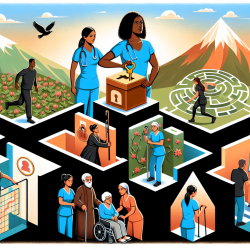Introduction
The migration journey often presents unique challenges, especially for women who navigate multiple roles across different cultural contexts. A recent study titled "A qualitative study of Filipina immigrants’ stress, distress and coping: the impact of their multiple, transnational roles as women" sheds light on the mental health experiences of Filipina immigrants in Norway. This blog aims to help practitioners enhance their skills by implementing insights from this research or encouraging further exploration into this area.
Key Findings from the Study
The study involved in-depth interviews with 14 Filipina immigrants in Norway, aged 24-49. The analysis revealed that these women experienced stress and distress due to their transnational roles, such as being workers, breadwinners, daughters, wives, and mothers. Two primary factors contributing to their distress were:
- Sense of Belonging: Feelings of loneliness and homesickness were prevalent, exacerbated by language barriers and cultural differences.
- Securing a Future: The uncertainty of visa status and the pressure to support families back home added to their stress.
Despite these challenges, the women demonstrated resilience through informal support networks and religious beliefs, which played a significant role in their coping strategies.
Implications for Practitioners
Understanding the contextual factors influencing Filipina immigrants' mental health can aid practitioners in identifying mental health issues and developing effective interventions. Here are some actionable insights:
- Enhance Cultural Competence: Practitioners should strive to understand the cultural and social contexts of immigrant women's lives to provide more tailored support.
- Facilitate Access to Resources: Providing information about available mental health resources and support groups can empower immigrant women to seek help.
- Encourage Community Engagement: Supporting initiatives that foster community connections can help mitigate feelings of isolation and loneliness.
Encouraging Further Research
While this study provides valuable insights, there is a need for further research to explore the attitudes of Filipina immigrants towards professional help-seeking and their experiences with the healthcare system. Such research could inform policy changes and improve service delivery for immigrant populations.
Conclusion
The resilience and coping strategies of Filipina immigrants highlight the importance of considering the broader social and cultural contexts in mental health support. Practitioners can play a crucial role in enhancing the well-being of immigrant women by adopting culturally sensitive approaches and fostering supportive environments.
To read the original research paper, please follow this link: A qualitative study of Filipina immigrants’ stress, distress and coping: the impact of their multiple, transnational roles as women.










